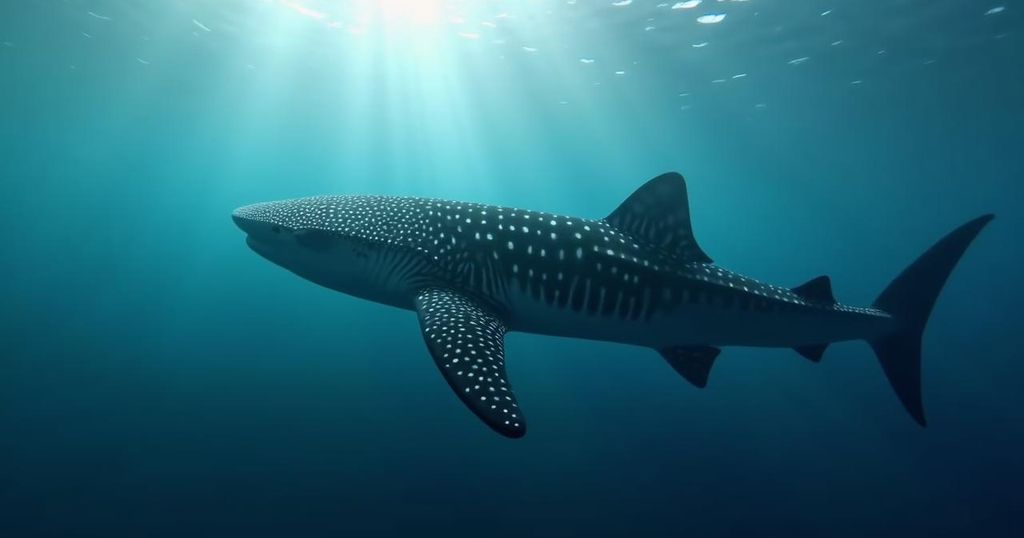Increasing Collision Risks for Whale Sharks Due to Global Warming and Shipping Traffic

A new study indicates that as global temperatures rise, whale sharks may face heightened risks of collisions with large ships, possibly increasing their encounters with maritime traffic by 15,000 times by 2100. Researchers found significant habitat losses under high emissions scenarios, emphasizing the urgent need for climate action to protect this endangered species from further threats amid changing ocean conditions.
A recent study suggests that global warming may significantly raise the risk of collisions between whale sharks and large vessels. Conducted by researchers at the University of Southampton and the Marine Biological Association (MBA), this research anticipates that rising ocean temperatures will compel whale sharks, which are already classified as endangered, to migrate to new habitats often intersecting with busy shipping routes. By the century’s end, the probability of whale sharks encountering large ships might increase by an astonishing 15,000 times compared to current levels. Dr. Freya Womersley, the lead author of the study, indicated that the shifts in whale sharks’ habitats are particularly severe under high emission scenarios. This could result in core habitat losses and a heightened risk of ship strikes as these massive fish adapt to warmer waters. With their mobile nature, whale sharks are sensitive to temperature changes and are increasingly vulnerable to being struck by vessels in the ever-busy maritime traffic. The researchers utilized satellite-tracking data of whale sharks along with global climate models to project their possible distributions under various climate change scenarios. The predictions illustrate that significant losses in core habitats could exceed 50% in specific national waters, particularly in Asia, by 2100 under a high emissions scenario. Conversely, under a sustainable development framework aimed at limiting global warming to no more than 2°C, some regions may experience habitat gains, notably in Europe. Prof. David Sims, a co-author of the study, noted that mitigating climate change could lead to less extreme habitat disruptions, emphasizing the importance of climate considerations in endangered species management. The research revealed that while some areas might see a decrease in whale shark encounters with shipping lanes, overall, there will be an increase in co-occurrences across all projected climate scenarios. Even if shipping traffic does not expand, the odds of whale sharks coming into contact with maritime traffic will rise significantly. The study has been published in the journal Nature Climate Change and highlights the need for incorporating climate change impacts into marine conservation strategies.
The growing concern over the safety of marine species, including whale sharks, against the backdrop of climate change is paramount. Whale sharks, the largest fish in the ocean, are particularly vulnerable due to their migratory patterns and dependence on specific habitats. As ocean temperatures increase due to climate change, these species are likely to shift to new habitats, which unfortunately, may overlap with heavily trafficked shipping lanes. The implications of this shift are critical not only for the conservation of whale sharks but also for broader marine biodiversity, as increasing ship strikes could lead to significant population declines.
In summary, this study underscores a concerning trend: as ocean temperatures rise, whale sharks may increasingly find themselves in dangerous proximity to large ships, leading to escalated risks of collisions. The urgency of climate action is emphasized—reducing emissions could potentially mitigate these impacts and support marine species at risk. The findings call for a reevaluation of marine conservation strategies, taking into account the interconnectedness of climate change and marine traffic. The study is a clarion call for global cooperation in addressing not only climate change but also its repercussions on marine ecosystems.
Original Source: www.eurekalert.org






